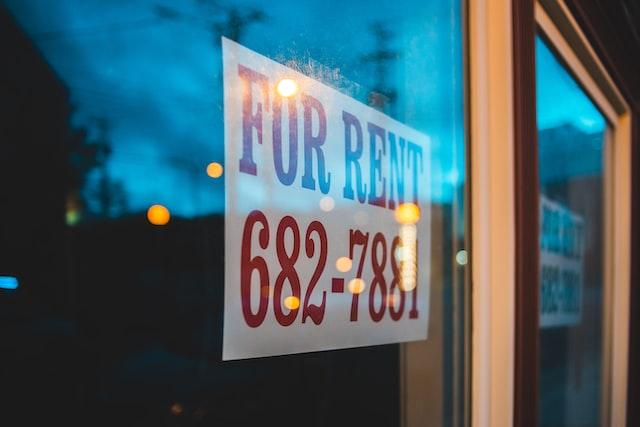What is Estate at Will?
Our product recommendations are made independently, but we may earn affiliate commissions if you use a link on this page.
Although it sounds straightforward, few people know what an estate at will is. What is the definition of this term? How is it different from other systems?
An estate at will is a legal term which is used to refer to an agreement which can be terminated at any time. There are several different types of agreements which can qualify as an estate at will.
If you’re interested in learning more about an estate at will, you’ve come to the right place. Read on to learn more about an estate at will to prepare for all possible rental situations.

What Is Estate At Will?
An estate at will isn’t as complex as it sounds. Also known as a lease at will, this term refers to a lease, mostly verbal, in which the lessor and lessee can terminate the agreement at any time. It is flexible and works well to accommodate month-to-month living conditions.
This agreement can be terminated at any moment in time by either party. It has no time constraints, meaning the lease will go on for as long as both parties are comfortable. The tenant or the landlord can be the person to request the lease ends, though it’s often the tenant who moves out before they are asked.
Sometimes, there is paperwork involved with an estate at will. Other times, the agreement will be purely verbal. An example of an estate at will would be an owner of a building renting out rooms to other people. If he decides to rent to a friend, he might partake in an estate at will as an easier form of agreement.
What Is The Distinguishing Feature Of An Estate At Will?
When considering the various forms of contracts relating to estates and rental agreements, it’s helpful to determine the distinguishing features of each contract. There is one thing that sets apart an estate at will from traditional forms of agreements.
The number one thing that sets apart an estate at will from other items is that there are no limits on the length of the agreement. It goes on for as long as the lessor and lessee agree to the situation.
Another thing that separates these items from others is the minimal paperwork involved. An estate at will is often just a verbal agreement between trusted partners.
Are Estate At Wills Common?
Leases at wills are not the most common contract between a lessee and a lessor, but they are often used. Many aren’t reported because they do not require much official documentation to kick into action.
Estate at wills are most common between trusted parties who feel comfortable entering into a casual contract with each other. In a more formal situation, both parties will use a more official agreement if something goes wrong.
Some states do not permit estate at wills as a form of agreement between parties. They are more common in some parts of the country than others

How Does An Estate At Will Work?
There isn’t much difference between traditional rental agreements and estate at wills. The only critical difference is that there is more flexibility in the rules and regulations surrounding it.
The lessor will give the lessee a place to live, and the lessee agrees to a payment amount as rent. They don’t define a time for the lease to last, instead agreeing to vacate the room or home when either party feels it is time.
Although there is no official paperwork with an estate at will, there are still laws in place to protect the tenant. Most states require notice of an eviction and protection against discrimination in the worst client cases.
Are There Laws To Defend Parties During Estate At Will?
Entering any agreement is scary, especially if you aren’t familiar with the person on the other end. Although there is no formal paperwork, there are still some laws in place to defend the lessee and lessor during an estate at will.
It’s common for either party to disagree about the duration of the lease, as there is no formal written contract. There are several legal protections to defend yourself in the worst-case scenario.
The Tenant
The tenant has specific rights in several areas for their living conditions. These are laid out to level the playing field if there are issues.
Here are a few rights of the tenant:
- __Optimal conditions: The landlord needs to ensure the conditions of the property are safe and up to code for the tenant. __
- __Notices: __The landlord may not enter the property without notice to the tenant once leased, except for emergency purposes.
- __Eviction notice: __The landlord must give ample notice to the tenant of evictions. The required number of days will vary by state.
These are designed to keep the tenant safe and prepared for the future.
Of course, the landlord needs protection, too! There are several items in place to keep them just as secure throughout the process.
The Lessor
The landlord must have protections from tenants to keep themselves and their property safe from harm. There are several things a tenant must do if they are living on a property under the terms of an estate at will.
Here are a few rights of the landlord:
- __Payments: __The tenant must make on-time payments following the conditions set before the lease begins.
- __Property damage: __The tenant must keep the property in good condition, owing responsibility if there is negligence and severe damage.
- Behavior: The tenant must behave decently. If there is criminal activity, they can be booted from the building.
These will keep their property and rights in quality condition.
The landlord reserves the right to kick out the tenant if they cause immense damage or engage in criminal activity on the property. They also should receive payment on time to keep the estate at will intact.

Is An Estate At Will A Good Choice?
There are a million different options when making legal real estate agreements, and an estate at will is just one of them. Ultimately, it’s up to you to determine if an estate at will helps you feel confident and secure. If not, there is no reason to partake in one!
Estate at wills are much more flexible than traditional contracts. They are excellent if you want something short-term but don’t want to go through extensive paperwork for a place to live. They will simplify the process and take some pressure off the landlord and tenant.
However, there is a sense of instability for the landlord and tenant in an estate at will. There is no official paperwork, so there is a high chance of issues if there is trouble with one of the parties.
Ensure you think through everything before deciding to go with this method. It might work for some people and be terrible for others.
Is A Lawyer Necessary To Request An Estate At Will?
A lawyer isn’t necessary to request an estate at will, but they are helpful to go over all the legal considerations for the agreement. If you have additional money on hand, a lawyer will be able to lay out the rights of each party to ensure you are in the right mindset going into the process. There are several expectations you will discuss.
Landlord Expectations
First, the expectations for the person who owns the building or room rented out. They need to know that the location must be a safe and livable spot for the tenant. If any safety issues arise, the landlord should take care of them as soon as possible.
Landlords should also warn tenants at least a full day before they need to enter the property for any reason. If they want to evict the tenant from the property, they should give ample warning to provide the tenant enough time to make plans for accommodations and storage after leaving.
Tenant Expectations
There are also expectations for the tenant. They need to pay rent on time, within the time frame specified between both parties. They should also be ready to pay for any damages that aren’t part of the standard wear and tear on the property.
Tenants need to report issues to the landlord right away to prevent them from becoming serious, allowing them plenty of time to fix the trouble. They should also avoid criminal activity and move out efficiently once it’s time to vacate the area.
Final Thoughts
An estate at will is a quality agreement when entering a rental or leasing situation. It’s often between two friends, and the lease will go on for as long as the parties agree. Although a lawyer or similar professional can help you with an estate at will, it isn’t necessary to enter into this item. It’s an excellent alternative, best for short-term needs.
We hope this information was helpful! If you ever find yourself in a place where an estate at will is an option, it could be an excellent choice if you trust the landlord. Ensure your state acknowledges this type of agreement to avoid any legal issues if something goes wrong.
Reference Legal Explanations
If you use any of the definitions, information, or data presented on Legal Explanations, please copy the link or reference below to properly credit us as the reference source. Thank you!
-
<a href="https://legal-explanations.com/blog/what-is-estate-at-will/">What is Estate at Will?</a>
-
"What is Estate at Will?". Legal Explanations. Accessed on December 15, 2024. https://legal-explanations.com/blog/what-is-estate-at-will/.
-
"What is Estate at Will?". Legal Explanations, https://legal-explanations.com/blog/what-is-estate-at-will/. Accessed 15 December, 2024
-
What is Estate at Will?. Legal Explanations. Retrieved from https://legal-explanations.com/blog/what-is-estate-at-will/.